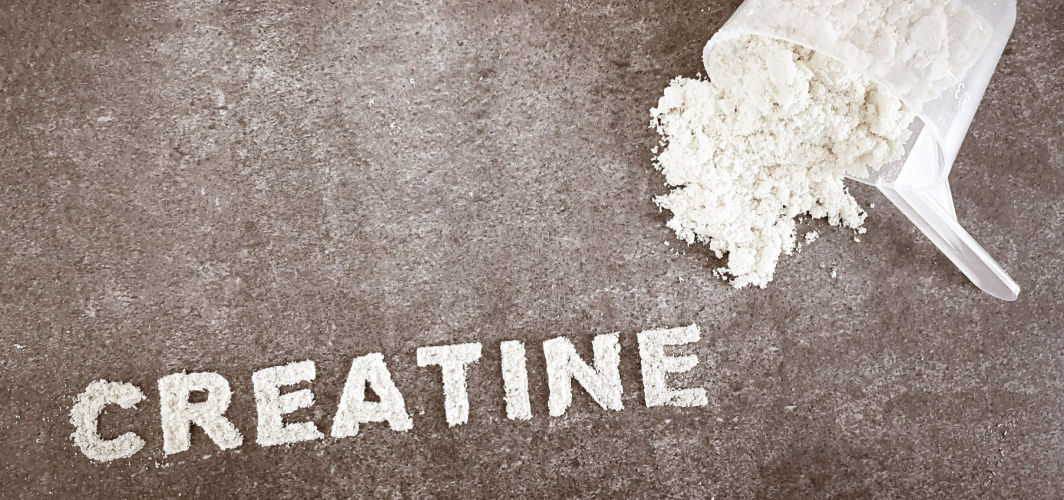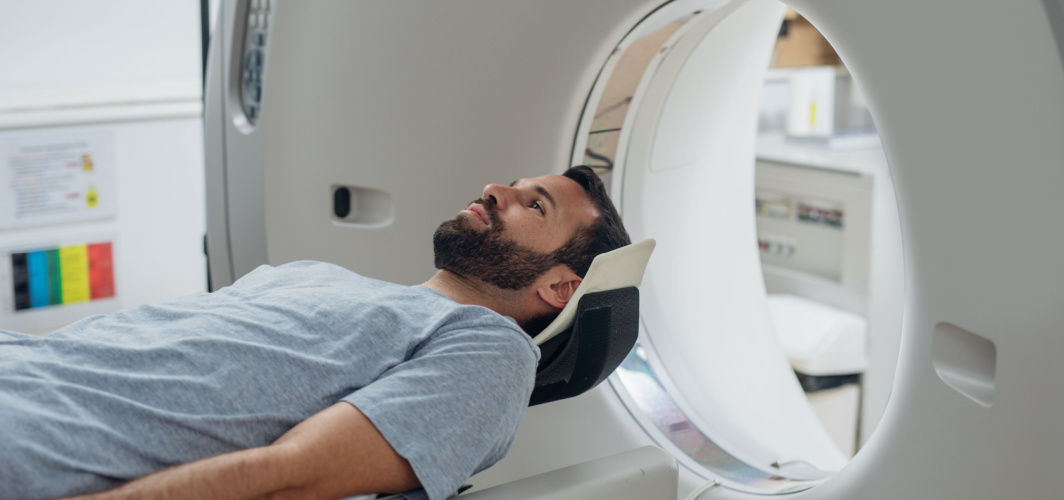General Health
Creatine Monohydrate: Benefits, Dosage, Side Effects, Precautions
8 min read
By Apollo Pharmacy, Published on - 12 July 2023, Updated on - 25 August 2023
Share this article
0
0 like

Creatine monohydrate is a popular supplement that many athletes and fitness enthusiasts use. It has become significant because of its benefits and proven effectiveness. People who want to improve their athletic performance, build stronger muscles, and maximize their fitness results have turned to creatine monohydrate. Whether you're a professional athlete trying to excel in your sport or someone who loves fitness, understanding the importance of creatine monohydrate is key to reaching your full potential and achieving your fitness goals.
DISCLAIMER: You must consult your healthcare provider before trying out any supplements, especially if you have any pre-existing medical condition, as their use can be detrimental to some people.
What is Creatine monohydrate?
Creatine monohydrate is a special kind of creatine that people take as a supplement. Creatine is a natural substance found in foods like meat and fish. Our body also produces creatine in the liver, kidneys and pancreas. It is popular among athletes and fitness fanatics because it may help improve their performance and strength.
When you take creatine monohydrate, your body turns it into another substance called creatine phosphate. This substance helps your muscles make energy during intense activities like weightlifting or sprinting.
Chemical Composition of Creatine Monohydrate
Creatine monohydrate is made up of two main parts: creatine and water.
- The name "monohydrate" means that each creatine molecule is connected to one water molecule.
- Creatine is a special substance that contains nitrogen.
- Our bodies naturally make creatine from amino acids, which are the building blocks of proteins.
- Creatine is mostly stored in our muscles and helps produce energy.
- The water molecule in creatine monohydrate keeps the compound stable and intact.
When we buy creatine monohydrate as a supplement, it usually comes as a fine, white powder. It dissolves easily in water, so we can mix it into drinks or take it in different ways. The composition of creatine monohydrate makes it stable and convenient to use as a dietary supplement.
How Does Creatine Monohydrate Work?
Here's how it works:
1. ATP Production: When you take creatine monohydrate, it changes into creatine phosphate in your body. Creatine phosphate is important for making ATP. ATP is the energy molecule required by the muscles to contract.
2. More Energy: When you do intense activities, your muscles use up ATP quickly. Creatine monohydrate helps replenish ATP levels by giving phosphate groups to convert ADP (adenosine diphosphate) back into ATP. This gives your muscles a continuous supply of energy to keep working hard.
3. Better Muscle Performance: With more ATP available, creatine monohydrate improves muscle performance. You'll have more strength and power to lift weights, run fast, or jump higher.
4. Cell Hydration: Creatine monohydrate also brings water into your muscle cells, making them bigger and better hydrated. This prevents protein breakdown, thus allowing muscle building.
The effects of creatine monohydrate can vary from person to person. It works best when combined with exercise and a healthy diet.
Creatine Monohydrate Benefits
There are various benefits of creatine monohydrate which include:
1. Improved Muscle Strength
Creatine monohydrate helps strengthen your muscles, thus helping you lift weights, do more repetitions, and increase your overall strength.
2. Enhanced Exercise Performance
Creatine monohydrate gives you more energy during intense activities like sprinting, jumping, and lifting weights. It helps you push harder, keep up your intensity, and feel less tired to perform better during your workouts.
3. Increased Muscle Mass
Taking creatine monohydrate can help your muscles grow and repair by promoting the production of proteins. With strength training, creatine monohydrate can help you develop lean muscle mass.
4. Faster Recovery
Creatine monohydrate helps your muscles recover faster after intense exercise. It replenishes the energy stored in your muscles and reduces muscle damage and inflammation. This means you'll need less time to recover between workouts and experience less muscle soreness.
5. Brain Function
Creatine monohydrate may improve cognitive performance, especially in tasks that require quick thinking and short-term memory.
How Safe is Creatine Monohydrate?
Creatine monohydrate is generally safe for most people when used as recommended. It has been studied extensively and used as a supplement for a long time. However, it's essential to follow the suggested dosage and talk to a healthcare professional if you have any existing medical conditions or are taking medications.
Potential Side Effects
While creatine monohydrate is generally safe for most individuals, there are some potential side effects. These side effects are typically mild and temporary and include:
1. Water Retention
Creatine can cause your muscles to retain water, leading to temporary weight gain or bloating. This effect is usually minor and goes away once you stop taking creatine or reduce your dosage.
2. Gastrointestinal Issues
Some individuals may experience digestive discomforts, such as stomach cramps, nausea, or diarrhoea. These symptoms are usually mild and can be minimized by taking creatine with food or dividing the dosage throughout the day.
It's important to note that the side effects of creatine monohydrate can be experienced if it is taken in high doses or for an extended period. Additionally, individuals with pre-existing kidney or liver conditions should exercise caution and consult a healthcare professional before using creatine monohydrate.
How Much Creatine Monohydrate Should I Take?
The recommended dosage of creatine monohydrate can vary depending on individual factors such as body weight, activity level, and specific goals. However, a common approach is to follow a loading phase and a maintenance phase dosage recommended by a healthcare professional. Every human body is unique, so to stay within the dosage limit, you must take professional advice for the dosage of this supplement.
How to Incorporate Creatine Monohydrate into a Fitness Routine?
You must:
1. Consult a healthcare professional
Get guidance from a healthcare professional before using creatine monohydrate. They will help determine your correct dosage based on your body weight, activity level, and goals.
2. Determine the dosage
Work with your healthcare professional to find the appropriate dosage of creatine monohydrate for you.
3. Choose a time
You can take creatine monohydrate at any time of the day. Some prefer taking it before or after workouts, while others divide the dosage daily.
4. Mixing and consumption
Mix creatine monohydrate powder with water or a beverage you choose. Stir well until the powder is fully dissolved, and drink it promptly.
5. Stay hydrated
Since creatine monohydrate may increase muscle water content, staying hydrated is essential. Drink enough water throughout the day.
6. Be consistent
To see the potential benefits, use creatine monohydrate consistently over a period of time while following the recommended dosage.
Who Can Benefit from Creatine Monohydrate?
Creatine monohydrate use benefits different people who do physical activities, including:
1. Athletes
Both professional and recreational athletes can benefit from creatine monohydrate. It can improve their performance, strength, and power during training and competitions.
2. Strength Trainers
People who do strength training, like weightlifting and bodybuilding, can benefit from creatine monohydrate. It can help increase muscle strength, build muscle mass, and improve overall performance.
3. High-Intensity Exercise Enthusiasts
Those who do high-intensity activities such as sprinting, jumping, and HIIT workouts can benefit from creatine monohydrate. It can enhance their exercise performance, allowing them to keep going at high intensity and delay feeling tired.
4. Ageing Individuals
Creatine monohydrates may have potential benefits for older adults. It can help counteract age-related muscle loss, improve muscle strength, and support overall physical function.
Precautions to Consider Before Taking Creatine Monohydrates
Consult with a healthcare provider before taking creatine monohydrate if you have any of the following:
1. Pre-existing Medical Conditions
If you have kidney or liver disease, talk to a healthcare professional before using creatine monohydrate.
2. Pregnancy and Breastfeeding
Consult with a healthcare professional if you are pregnant or breastfeeding, as its safety during these stages is uncertain.
3. Medications
Seek advice from a healthcare professional if you take medications, as certain drugs may interact with creatine monohydrate or require dosage adjustments.
Takeaway
Creatine monohydrate is a helpful supplement for enhancing athletic performance, building stronger muscles, and improving exercise results. It provides benefits like enhanced energy, muscle growth, and quicker recovery. It's essential to follow the recommended dosage, seek advice from healthcare professionals, and choose high-quality products for safe and effective use.
To buy supplements for muscle building, Click Here
FAQs
Q. Can women take creatine monohydrate?
Yes, women can take creatine monohydrate. It offers the same benefits for both men and women. However, pregnant should consult a doctor before taking it.
Q. How long does it take for creatine monohydrate to work?
Some people may experience benefits within a few days, while others may take a few weeks to notice the effects of creatine monohydrate.
Q. Can creatine monohydrate be taken on an empty stomach?
Creatine monohydrates can be taken with or without food. However, taking it with a meal may help minimize potential gastrointestinal discomfort.
Q. Is creatine monohydrate suitable for teenagers?
Creatine monohydrate is generally safe for teenagers, but it's advisable to consult a healthcare professional before use, especially for individuals under 18.
Q. How long can I store creatine monohydrate powder?
Creatine monohydrate powder can be stored for a long time if kept in a cool, dry place away from moisture and direct sunlight. Follow the expiration date on the packaging.
Medically reviewed by Dr Sonia Bhatt.
General Health
Consult Top Emergency care and Critical Care
View AllLeave Comment
Recommended for you

General Health
Seaweed To Shrimps, 5 Iodine-Rich Foods For People With Hypothyroidism
Those suffering from hypothyroidism have an underactive thyroid gland that doesn’t produce a sufficient amount of thyroid hormones. Increasing your intake of iodine can help boost the production of thyroid hormones to help manage this condition. Read on to find out which foods are high in iodine.

General Health
The Role of MRI Scans in Detecting and Diagnosing Cancer
Discover the pivotal role of MRI scans in early cancer detection and diagnosis, offering insights for improved patient care.

General Health
Apollo 24|7’s WhatsApp To Order A Boon For Users! Ordering Medicines Is Now Effortless
The WhatsApp to Order feature is increasingly becoming popular among the masses for the ease of ordering medicines online. It also simplifies the process of booking a lab test online.
Subscribe
Sign up for our free Health Library Daily Newsletter
Get doctor-approved health tips, news, and more.
Visual Stories

Plant-based Foods That Are a Great Source of Iron
Tap to continue exploring
Recommended for you

General Health
Seaweed To Shrimps, 5 Iodine-Rich Foods For People With Hypothyroidism
Those suffering from hypothyroidism have an underactive thyroid gland that doesn’t produce a sufficient amount of thyroid hormones. Increasing your intake of iodine can help boost the production of thyroid hormones to help manage this condition. Read on to find out which foods are high in iodine.

General Health
The Role of MRI Scans in Detecting and Diagnosing Cancer
Discover the pivotal role of MRI scans in early cancer detection and diagnosis, offering insights for improved patient care.

General Health
Apollo 24|7’s WhatsApp To Order A Boon For Users! Ordering Medicines Is Now Effortless
The WhatsApp to Order feature is increasingly becoming popular among the masses for the ease of ordering medicines online. It also simplifies the process of booking a lab test online.
